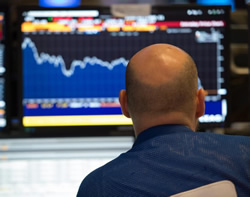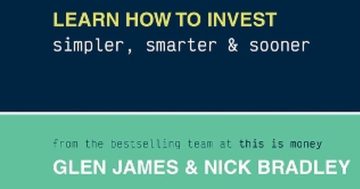James Hall* says amateur investors are being told to beware throwing their money at the share market in these volatile times.
 Social distancing measures have worked wonders in flattening the curve of the number of Coronavirus cases, but it hasn’t stopped the pseudo-stock trading experts spruiking their knowledge of how to get rich quick.
Social distancing measures have worked wonders in flattening the curve of the number of Coronavirus cases, but it hasn’t stopped the pseudo-stock trading experts spruiking their knowledge of how to get rich quick.
We all know them — they’re in the WhatsApp groups, the Friday Zoom knock-offs or the flash-in-the-pan Houseparty rooms, telling anyone who will listen how this is the time to buy as the stock market tumbles
The problem is these sudden heroes, also known as retail traders, have put their money where their mouth is and lost.
They’ve lost big.
The number of Australians day-trading the share market during the pandemic has spiked to such aggressive proportions the financial watchdog has taken the extraordinary measure of warning amateur investors to cool it.
“We found that some retail investors are engaging in short-term trading strategies unsuccessfully attempting to time price trends,” the Australian Securities and Investments Commission (ASIC) said when releasing the findings of an analysis from the end of February to the start of May.
The increase of trading frequency as well the spike in the number of stocks traded per day reveals more Australians are day-trading, exposing themselves to destructive losses.
“Even market professionals find it hard to time the market in a turbulent environment, and the risk of significant losses is a regular challenge,” the ASIC said.
“For retail investors to attempt the same is particularly dangerous, and likely to lead to heavy losses — losses that could not happen at a worse time for many families.
“Retail investors chasing quick profits by playing the market over the short term have traditionally performed poorly, in good times and bad, even in relatively stable, less volatile market conditions,” it said.
Over the period, turnover from retail traders rose from $1.6 billion in an average period to $3.3 billion. Nearly 4,700 new accounts were registered each day, which is three-to-four times more than usual, while a huge number of dormant trading accounts were re-registered.
According to Google Trends, search interest for ‘stocks’ and ‘shares’ surged to an all-time high in March.
Shares-related searches soared 225 per cent last month, while the phrase ‘shares to buy now’ spiked 1,600 per cent in the past two months.
Chief Investment Officer at Burman, Julia Lee said uneducated day-trading was as dangerous as rolling the dice or punting on greyhounds.
“Most first-time investors see the prospect of making lots of money over a short period of time, and it’s more akin to gambling than anything else,” Ms Lee said.
“When it comes to successful investing, it’s not necessarily about trying to make as much money as possible that makes a successful investor, but it’s about understanding the risk management side of things.
“Often it’s by controlling the risk that you become a successful investor over time.”
Ms Lee said these market punters are comparing the current value of shares with the lofty heights of January and the ASX’s all-time high reached on February 20, expecting prices to snapback once Coronavirus fears and restrictions ease.
“In actual fact, you need to re-evaluate the information that’s available, and it could be that the circumstances for valuing the market have changed, which they have, and there’s more risk,” she said.
The investment expert also says the Afterpay-effect had spurred get-rich-quick traders as the popular stock records aggressive and volatile rise and falls.
“When a lot of the younger generation look at investing in the market, they go with names that they’re familiar with and Afterpay is a big one,” Ms Lee said.
“It has performed well so they might get a few lucky hits and think this is an easy way to make money.
“When in actual fact, when volatility spikes, you need to be very careful on the risk management side.
“It’s fantastic that people are getting involved in the market, just go in with the expectation that it does take some time to learn how to invest and don’t expect to become a millionaire overnight.
“I look at it more as a process — if I was to learn any trade it would take two or three years, and it’s the same with the market, it’s important to learn the lessons otherwise, at some point, you could end up getting burnt.”
*James Hall is a finance reporter with news.com.au. He tweets @James_P_Hall
This article first appeared at news.com.au.











